THE QUARREL for Class 6 ENGLISH
THEME
The poem is about a quarrel between the poet and her brother. Generally, brothers and sisters quarrel with each other. It is a very common situation. Many times they quarrel with each other without any reason. Their quarrels begin over very small, petty issues and how with a small kind act the quarrels end.
THEME
The poem is about a quarrel between the poet and her brother. Generally, brothers and sisters quarrel with each other. It is a very common situation. Many times they quarrel with each other without any reason. Their quarrels begin over very small, petty issues and how with a small kind act the quarrels end.
EXPLANATION
Kavita kavyitri aur uske bhai ke beech ke ek jhagade ke baare mein hai. Aamtaur pr bhai-bhen aapas mein jhagadte rehte hain. Yah ek bahut hi common sthiti hai. Kai baar vah bina vajah aapas mein jhagad jaate hain. Unke jhagade bahut choti-choti baaton pr shuru ho jaate hain aur ekdum se unke jhagade khatam bhi ho jaate hain.
थीम
कविता कवयित्री और उसके भाई के बीच के एक झगड़े के बारे में है। आमतौर पर भाई-बहन आपस में झगड़ते रहते हैं। यह एक बहुत ही सामान्य स्थिति है। कई बार वह बिना वजह आपस में झगड़ जाते हैं। उनके झगड़े बहुत छोटी-छोटी बातों पर शुरू हो जाते हैं और एकदम से उनके झगड़े खत्म भी हो जाते हैं।
ABOUT THE AUTHOR
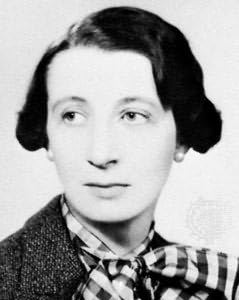
Eleanor Farjeon was born on February 13, 1881 in London. She died on June 5, 1965 at Hampstead, London. She was an English writer for children.
ABOUT THE AUTHOR

Eleanor Farjeon was born on February 13, 1881 in London. She died on June 5, 1965 at Hampstead, London. She was an English writer for children.
EXPLANATION
Eleanor Farjeon ka janm 13 February 1881 ko London mein hua tha. Unki mrityu 5 June 1965 ko Hampstead, London main hui thi. Vah ek angreji lekhika thi jo bachon ke liye likhti thi.
लेखक के बारे में
एलेनोर फरजेन, का जन्म 13 फरवरी, 1881 को लंदन में हुआ था। उनकी मृत्यु 5 जून, 1965 को हैम्पस्टेड, लंदन में हुई थी। वह एक अंग्रेजी लेखिका थीं जो बच्चों के लिए लिखती थी।
PARAGRAPH 1
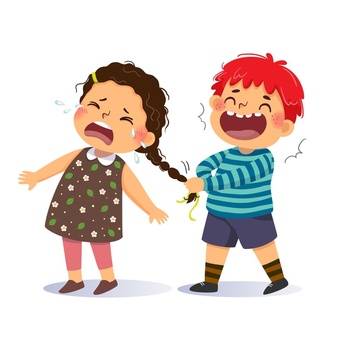
I quarrelled with my brother
I don’t know what about,
One thing led to another
And somehow we fell out.
PARAGRAPH 1

I quarrelled with my brother
I don’t know what about,
One thing led to another
And somehow we fell out.
IMPORTANT WORDS
Quarrelled (2nd form of verb for fight): fought, लड़ाई करना, झगड़ा करना
IMPORTANT WORDS
Quarrelled (2nd form of verb for fight): fought, लड़ाई करना, झगड़ा करना
EXPLANATION
Poet batati hai ki uski uske bhai ke sath ladai ho jaati hai. Vah nahin jante ki unki ladai kis baat pr hui thi. Poet batati hai ki un dono ki ladai pehle kisi baat se shuru hui aur fir unki bahas badhti hi chali gai. Fir vah dono ladte-ladte gir pade.
EXPLANATION
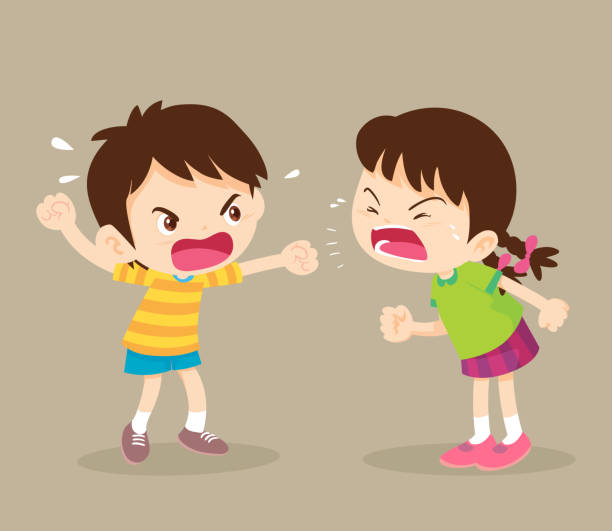
कवयित्री (Female Poet) बताती है कि उसकी उसके भाई के साथ लड़ाई हो जाती है। वह नहीं जानते कि उनकी लड़ाई किस बात पर हुई थी। कवयित्री बताती है कि उन दोनों की लड़ाई पहले किसी बात से शुरू हुई और फिर उनकी बहस बढ़ती ही चली गई। फिर वह दोनों लड़ते-लड़ते गिर पड़े।
PARAGRAPH 2
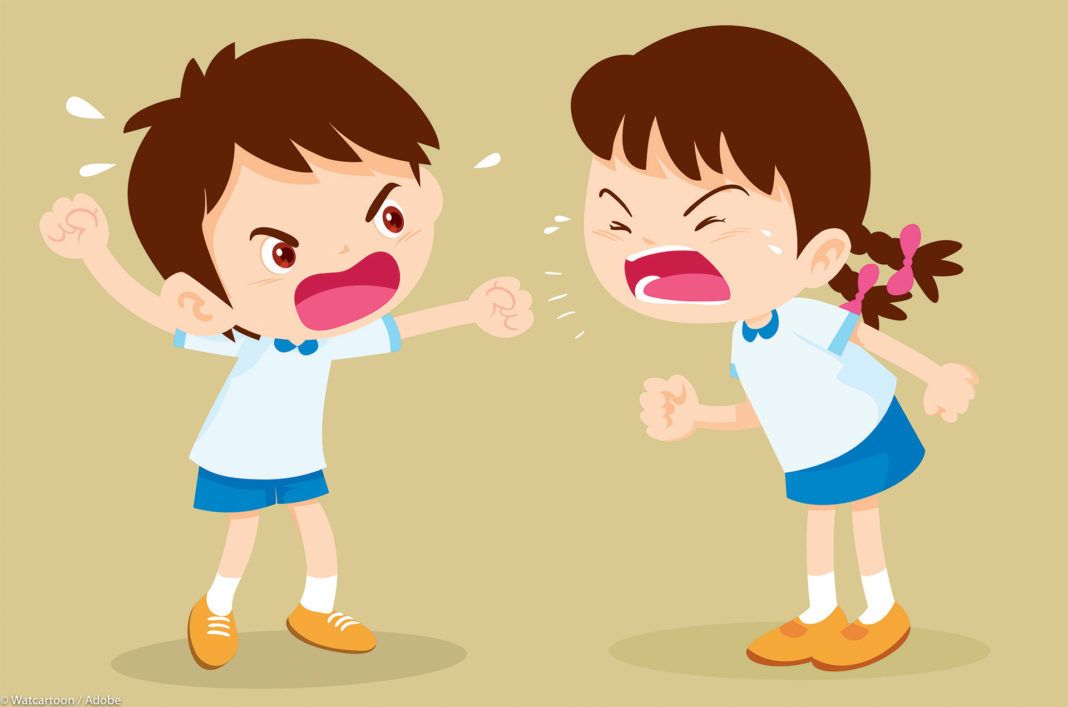
The start of it was slight,
The end of it was strong,
He said he was right,
I knew he was wrong!
PARAGRAPH 2

The start of it was slight,
The end of it was strong,
He said he was right,
I knew he was wrong!
IMPORTANT WORDS
Slight: small, modest, छोटी, थोड़ा
IMPORTANT WORDS
Slight: small, modest, छोटी, थोड़ा
EXPLANATION

Yahan poet batati hai ki unki ladai ki shuruaat ek choti si baat se hui thi pr vah ladai badhti hi chali gai aur ant mein unki jabardast ladai ho gai. Poet kehti hai ki uska bhai kah raha tha ki vah sahi hai aur poet ko lag raha tha ki uska bhai galat hai. Ve dono hi khud ko sahi aur ek dusre ko galat thehra rahe the.
EXPLANATION
यहाँ कवयित्री बताती है कि उनकी लड़ाई की शुरुआत एक छोटी सी बात से हुई थी पर वह लड़ाई बढ़ती ही चली गई और अंत में उनकी जबरदस्त लड़ाई हो गई। कवयित्री कहती है कि उसका भाई कह रहा था कि वह सही है और कवयित्री को लग रहा था कि उसका भाई गलत है। वे दोनों ही खुद को सही और एक दूसरे को गलत ठहरा रहे थे।
PARAGRAPH 3
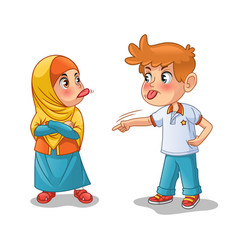
We hated one another.
The afternoon turned black.
Then suddenly my brother
Thumped me on the back,
PARAGRAPH 3

We hated one another.
The afternoon turned black.
Then suddenly my brother
Thumped me on the back,
IMPORTANT WORDS
Turned black: to become unpleasant, to get spoiled, बुरा, खराब होना
Thumped: hit, मारना, थपकी देना
IMPORTANT WORDS
Turned black: to become unpleasant, to get spoiled, बुरा, खराब होना
Thumped: hit, मारना, थपकी देना
EXPLANATION
Yahan poet batati hai ki unki ladai iss mukam pr pahunch gai thi ki vah ek dusre se gussa ho gaye aur ek dusre se nafrat karne lage. Unki ladai ki vajah se unki dopahar (afternoon) kharab ho gai thi. Fir achanak se poet ke bhai ne poet ke peeth (back) pr hath rakha.
EXPLANATION
यहाँ कवयित्री बताती है कि उनकी लड़ाई इस मुकाम पर पहुँच गई कि वे दोनों एक दूसरे से गुस्सा हो गए और एक दूसरे से नफरत करने लगे। उनकी लड़ाई की वजह से उनकी दोपहर खराब हो गई थी। फिर अचानक से कवयित्री के भाई ने कवयित्री के पीठ पर हाथ रखा।
PARAGRAPH 4
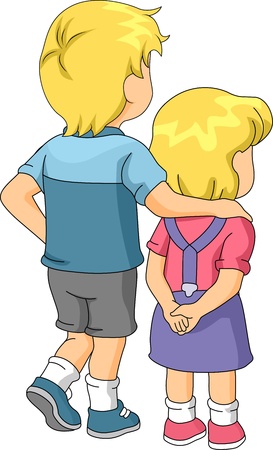
And said, “Oh, come along!
We can’t go on all night —
I was in the wrong.”
So he was in the right.
PARAGRAPH 4

And said, “Oh, come along!
We can’t go on all night —
I was in the wrong.”
So he was in the right.
EXPLANATION
Poet ke bhai ne uski peeth pr hath rakha aur kaha "Chalo ab khatam karte hain, hum iss ladai ko puri raat nahi khinch sakte. Meri hi galti thi." Yahan poet ka bhai apna badappan dikhta hai aur apni galti maan leta hai. Poet ka bhai yah kehna chahta hai ki unki shaam pehle hi ladai ki vajah se kharab ho chuki hai aur vah nahi chahta ki unki raat bhi ladai ki vajah se kharab ho. Ant mein poet ko ehsaas hota hai hai ki unke bhai ne badappan dikha kar apni galti maani balki sach to yah tha ki unka bhai sahi tha aur galti poet ki hi thi.
EXPLANATION
कवयित्री के भाई ने उसकी पीठ पर हाथ रख कर कहा "चलो अब इसे खत्म करते हैं, हम इस लड़ाई को पूरी रात नहीं खींच सकते। मेरी ही गलती थी।" यहाँ कवयित्री का भाई अपना बड़प्पन दिखाता हैं और अपनी गलती मान लेता है। कवयित्री का भाई यह कहना चहता था कि उनकी शाम पहले ही लड़ाई की वजह से खराब हो चुकी है और वह नहीं चाहता था कि उनकी रात भी लड़ाई की वजह से खराब हो। अंत में कवयित्री को यह एहसास होता है कि उनके भाई ने बड़प्पन दिखाकर अपनी गलती मानी बल्कि सच तो यह था कि उनका भाई सही था और गलती कवयित्री की थी।
SUMMARY
SUMMARY
POETIC DEVICES
Metaphor: It is a literary device which is used to make a comparison between two things that aren’t alike but do have something in common.
For Example: 1)“we fell out” means to fall down, but here it refers to their quarrel.
2)“afternoon turned black” does not mean that day became dark but the poet’s day went bad.
Personification: It is the attribution of human characteristics to animals and non-human things.
For Example: 1) “afternoon turned black”, here the afternoon is personified. In reality, the poet’s day went bad.
Alliteration: It is the occurrence of the same letter or sound at the beginning of adjacent or closely connected words.
For Example: 1) “start of it was slight”.
Oxymoron: It is a combination of contradictory or incongruous words.
For Example: 1) “The start of it was slight, The end of it was strong”
2) “He said he was right, I knew he was wrong“
3) “I was in the wrong. So he was in the right.”
Enjambment: It is the continuation of a sentence or clause across a line break.
For Example: 1) “I quarrelled with my brother I don’t know what about, One thing led to another And somehow we fell out.”. This sentence continues to four lines.
Repetition: It is the repetition of certain words or phrases in the poem for poetic effect. For Example: 1) the words “I”, “he”, “right”, “wrong” have been repeated in the poem.
POETIC DEVICES
Metaphor: It is a literary device which is used to make a comparison between two things that aren’t alike but do have something in common.
For Example: 1)“we fell out” means to fall down, but here it refers to their quarrel.
2)“afternoon turned black” does not mean that day became dark but the poet’s day went bad.
Personification: It is the attribution of human characteristics to animals and non-human things.
For Example: 1) “afternoon turned black”, here the afternoon is personified. In reality, the poet’s day went bad.
Alliteration: It is the occurrence of the same letter or sound at the beginning of adjacent or closely connected words.
For Example: 1) “start of it was slight”.
Oxymoron: It is a combination of contradictory or incongruous words.
For Example: 1) “The start of it was slight, The end of it was strong”
2) “He said he was right, I knew he was wrong“
3) “I was in the wrong. So he was in the right.”
Enjambment: It is the continuation of a sentence or clause across a line break.
For Example: 1) “I quarrelled with my brother I don’t know what about, One thing led to another And somehow we fell out.”. This sentence continues to four lines.
Repetition: It is the repetition of certain words or phrases in the poem for poetic effect. For Example: 1) the words “I”, “he”, “right”, “wrong” have been repeated in the poem.
QUESTIONS AND ANSWERS
Question 1. With your partner try to guess the meaning of the underlined phrases.
(i) And somehow we fell out.
(ii) The afternoon turned black.
Answer: (i) fell out- drop down.
(ii) turned black- was spoiled due to a bad mood.
Question 2. Read these lines from the poem:
(i) One thing led to another
(ii) The start of it was slight
(iii) The end of it was strong
(iv) The afternoon turned black
(v) Thumped me on the back.
Discuss with your partner what these lines mean.
Answer: (i) The brother and sister went on arguing. The fight continued, one after the other argument.
(ii) The quarrel started over a small issue.
(iii) The quarrel ended on a bitter note and it turned into a big fight.
(iv) The quarrel spoiled their mood. The afternoon became very sad and unpleasant.
(v) He (brother) patted her back in a friendly manner.
QUESTIONS AND ANSWERS
Question 1. With your partner try to guess the meaning of the underlined phrases.
(i) And somehow we fell out.
(ii) The afternoon turned black.
Answer: (i) fell out- drop down.
(ii) turned black- was spoiled due to a bad mood.
Question 2. Read these lines from the poem:
(i) One thing led to another
(ii) The start of it was slight
(iii) The end of it was strong
(iv) The afternoon turned black
(v) Thumped me on the back.
Discuss with your partner what these lines mean.
Answer: (i) The brother and sister went on arguing. The fight continued, one after the other argument.
(ii) The quarrel started over a small issue.
(iii) The quarrel ended on a bitter note and it turned into a big fight.
(iv) The quarrel spoiled their mood. The afternoon became very sad and unpleasant.
(v) He (brother) patted her back in a friendly manner.
EXTRA QUESTION AND ANSWERS
Question 1. What was the reason for the quarrel that continued till afternoon?
Answer: The reason for the quarrel that continued till the afternoon was that they blamed each other for the fight. The brother claimed himself to be right while he was wrong. The afternoon turned out to be unpleasant because of the quarrel.
Question 2. Who ended the fight and how?
Answer: The brother realized his mistake and ended the fight by accepting his fault. He patted his sister's back and asked her to forgive and forget.
Question 3. Oh! come along' we can't go on all night. Who said this line and why?
Answer: The poet's brother said this line because they had a quarrel and he wanted to resolve the matter.
Question 4. What lesson do you learn from the poem?
Answer: Quarrel arises due to misunderstanding. No quarrel lasts long. Reasons of quarrel are realized after both sides feel sorry and become friends again.
Question 5. Why should we not continue to quarrel with any one?
Answer: We should not continue a quarrel with anyone for a long time because it is always harmful for a relationship. It is the root cause of misunderstandings which may lead to an end of a good relationship. It is always preferable to find a solution and bring an end to the quarrel.
EXTRA QUESTION AND ANSWERS
Question 1. What was the reason for the quarrel that continued till afternoon?
Answer: The reason for the quarrel that continued till the afternoon was that they blamed each other for the fight. The brother claimed himself to be right while he was wrong. The afternoon turned out to be unpleasant because of the quarrel.
Question 2. Who ended the fight and how?
Answer: The brother realized his mistake and ended the fight by accepting his fault. He patted his sister's back and asked her to forgive and forget.
Question 3. Oh! come along' we can't go on all night. Who said this line and why?
Answer: The poet's brother said this line because they had a quarrel and he wanted to resolve the matter.
Question 4. What lesson do you learn from the poem?
Answer: Quarrel arises due to misunderstanding. No quarrel lasts long. Reasons of quarrel are realized after both sides feel sorry and become friends again.
Question 5. Why should we not continue to quarrel with any one?
Answer: We should not continue a quarrel with anyone for a long time because it is always harmful for a relationship. It is the root cause of misunderstandings which may lead to an end of a good relationship. It is always preferable to find a solution and bring an end to the quarrel.
GLOSSARY
Quarrelled (2nd form of verb for fight): fought, लड़ाई करना, झगड़ा करना
Slight: small, modest, छोटी, थोड़ा
Turned black: to become unpleasant, to get spoiled, बुरा, खराब होना
Thumped: hit, मारना, थपकी देना
GLOSSARY
Quarrelled (2nd form of verb for fight): fought, लड़ाई करना, झगड़ा करना
Slight: small, modest, छोटी, थोड़ा
Turned black: to become unpleasant, to get spoiled, बुरा, खराब होना
Thumped: hit, मारना, थपकी देना